Are Guinea Pigs Nocturnal? Unveiling the Sleep Secrets of Our Piggies
Have you ever wondered if your guinea pig is secretly partying all night long while you sleep? Well, it's time to uncover the truth!

Key Takeaways:
- Guinea pigs are not nocturnal; they are crepuscular, meaning they are most active during dawn and dusk.
- Understanding guinea pigs' sleeping habits is crucial for their well-being and helps pet owners create a comfortable environment.
- Guinea pigs take short naps throughout the day and night, totaling four to six hours of sleep.
Guinea pigs, the small, sociable rodents that have captured the hearts of many pet owners, have unique behaviors that intrigue and delight their human companions. One of the most common questions asked by many piggy parents is, "Are guinea pigs nocturnal?" This article will delve into the sleep habits of guinea pigs, shedding light on how these adorable creatures rest and rejuvenate.
The Active Nature of Guinea Pigs
Guinea pigs are very active animals, often seen scurrying around their cage or playing with their fellow piggies. Their active nature is a result of their position in the food chain. As prey animals, guinea pigs need to be on high alert to stay safe from other predators. This means that they rarely enter a deep sleep, as they need to be ready to react to any potential threats. Additionally, different personalities among guinea pigs can influence their activity levels and behavior, with some being more active at night while others prefer daytime activity.
Understanding the Sleep Routine
When it comes to guinea pig sleeping habits, it's important to note that they do not follow the same sleep schedule as humans. Instead of sleeping for long periods at night, guinea pigs take short power naps throughout the day and night. These short naps allow them to get enough rest while still being able to remain vigilant.
Crepuscular Creatures: Dawn and Dusk Activity
Contrary to the belief that guinea pigs are nocturnal, these pets are actually crepuscular. This means they are most active during the twilight hours of dawn and dusk. During these times, you’ll notice your guinea pigs scurrying around and being more playful. This behavior aligns with their natural instincts from their wild ancestors, who foraged for food during these safer, low-light hours to avoid predators and extreme temperatures, including direct sunlight.
How Much Sleep Do Guinea Pigs Require?
On average, guinea pigs require between four and six hours of sleep per day. However, they don’t achieve this in one go. Instead, they take multiple short naps, which can last anywhere from a few minutes to half an hour. This sleep pattern ensures that they get enough sleep to maintain their health and energy levels while remaining alert to their surroundings.
During night time, guinea pigs often prepare for sleep and exhibit specific behaviors indicating they are winding down for the evening.
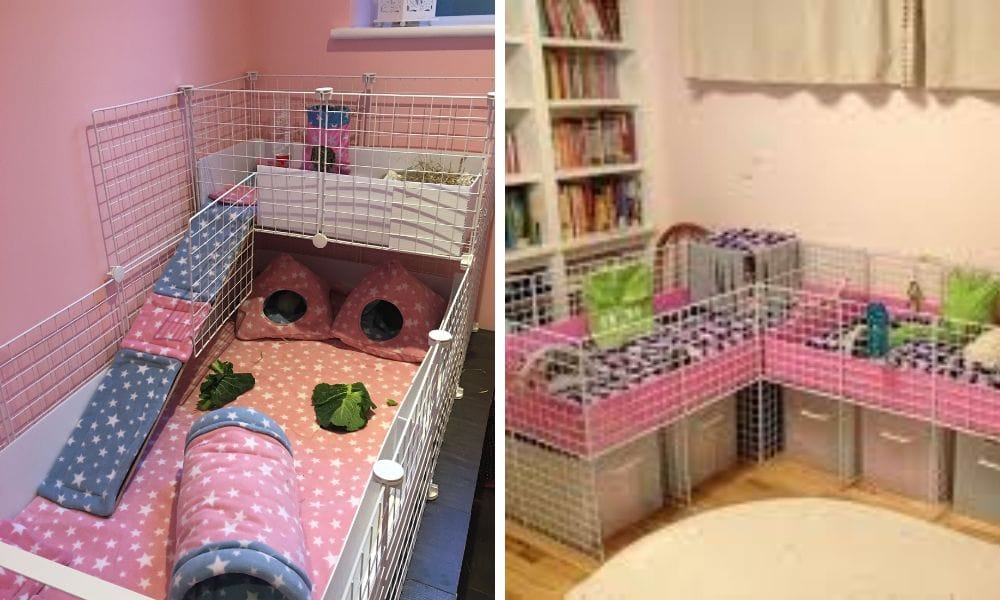
The Impact of Environment on Sleep Habits
The environment plays a significant role in a guinea pig's sleeping habits. In their natural habitat, guinea pigs are incredibly vulnerable to predators, which is why they sleep with their eyes open or only half-closed. In a domestic setting, ensuring that your guinea pig's cage is placed in a quiet area away from loud noises can help them feel secure and promote better quality sleep.
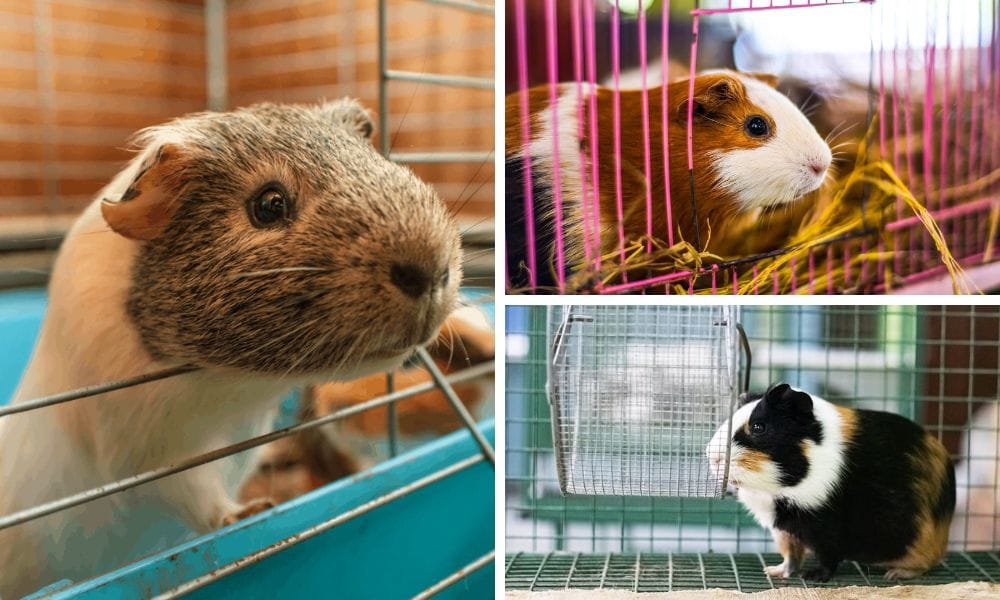
Creating a Comfortable Sleeping Space
To support your guinea pig's sleeping habits, it's essential to provide the correct bedding and a peaceful environment. Soft, absorbent bedding allows for comfortable naps, and a hideaway within the guinea pig's cage offers a sense of security. By mimicking their natural habitat as much as possible, you can help your guinea pig feel safe and encourage healthy sleep patterns.
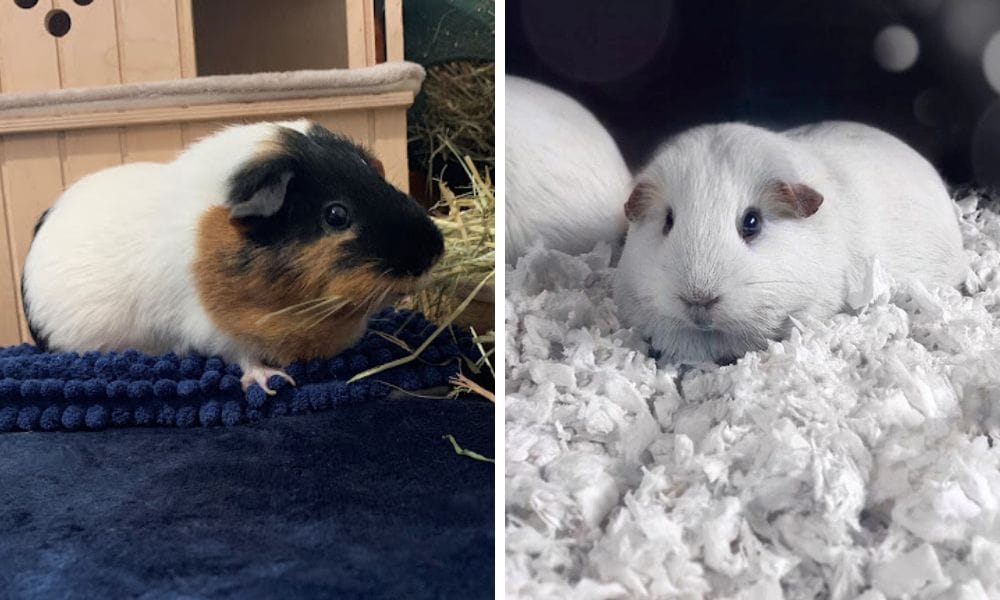

The Evolutionary Background of Guinea Pig Sleep Patterns
Have you ever wondered how the guinea pig's sleeping habits evolved? It's fascinating to consider that our pet guinea pig's ancestors were once wild guinea pigs, roaming the grasslands of South America. Their natural instinct for survival shaped their unique sleep patterns. Unlike other animals that might be strictly nocturnal or diurnal, guinea pigs developed a flexible sleeping schedule to avoid predators and make the most of their environment. This adaptability has been passed down through generations, and even in the safety of a domestic setting, these instincts persist.
Understanding the evolutionary context of your furry friend's sleep behavior can shed light on why they take frequent power naps instead of long, uninterrupted sleep sessions. These power naps are a testament to their ancestral need to stay alert. While your pet guinea pig enjoys the safety of their cage, they still exhibit this natural instinct, which is crucial for their well-being. It's a remarkable example of how deeply ingrained survival mechanisms can influence the behavior of animals, even when they are no longer in the wild.
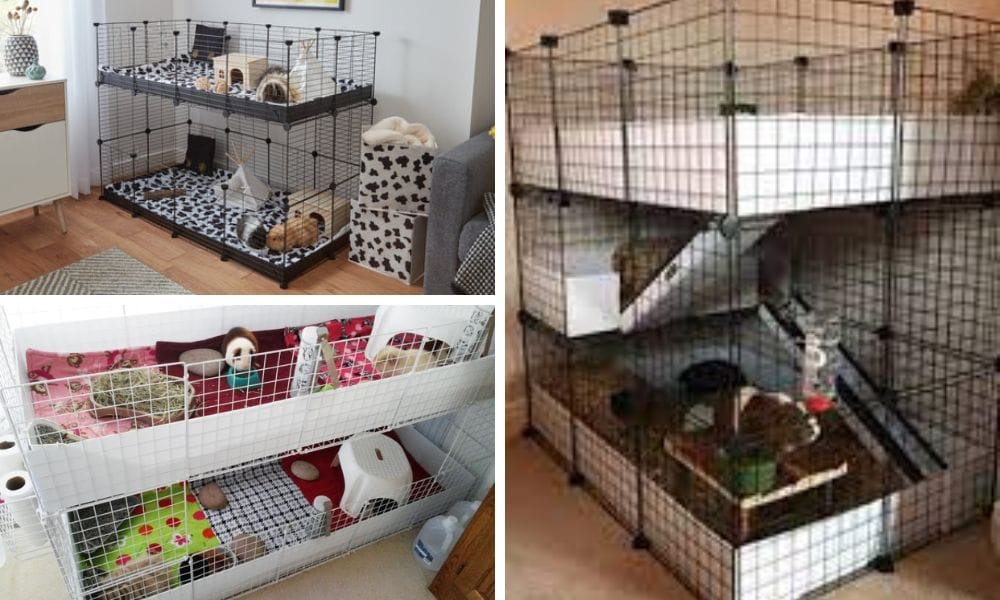
Guinea Pigs and the Power Nap Phenomenon
Guinea pigs, much like humans, can benefit from short periods of rest known as power naps. These brief interludes of sleep can be particularly rejuvenating for our little friends, enhancing their overall well-being. Observing guinea pigs sleeping habits, you might notice that they doze off for short spans throughout the day. This is not a sign of laziness but rather a natural pattern that helps them stay alert and maintain energy levels. Power naps serve as a quick battery recharge, allowing guinea pigs to be more active during their peak hours of dawn and dusk.
Interestingly, the concept of a power nap is not exclusive to humans. In the animal kingdom, and specifically for guinea pigs, these short sleep sessions are crucial for cognitive function and mood regulation. When guinea pigs take these naps, they often choose a spot in their cage that feels safe and comfortable. As a pet owner, observing your guinea pig's sleeping habits, including where and when they take their power naps, can provide insights into their comfort and happiness levels within their environment.
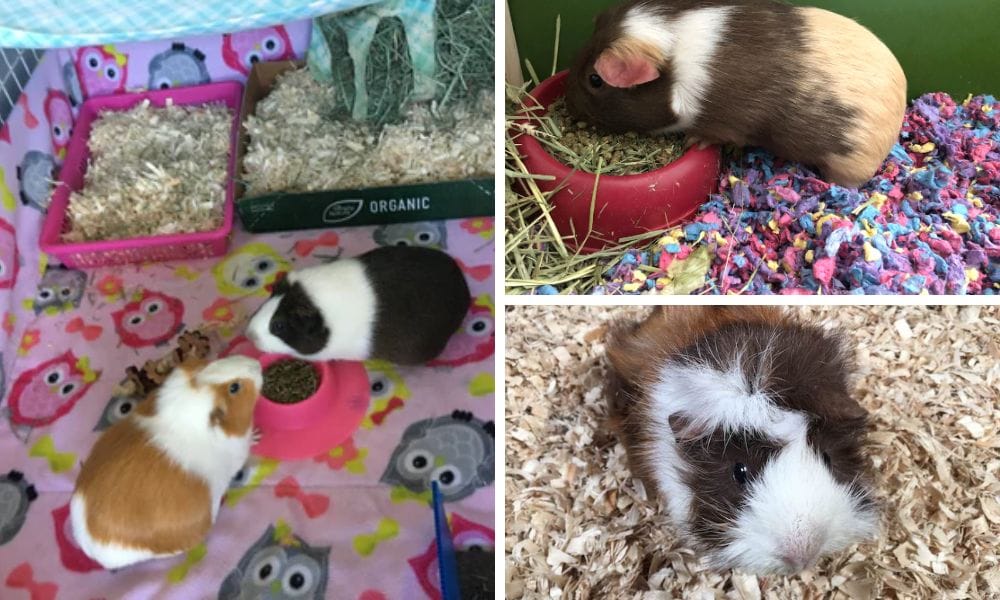
Optimizing Your Guinea Pig's Cage for Better Sleep
When it comes to a guinea pig's cage, creating an environment conducive to good sleeping habits is essential for their well-being. The design and setup of the cage can significantly impact a guinea pig's sleeping habits. To promote a healthy sleep routine, the cage should have a designated sleeping area that is cozy, quiet, and dark. This can be achieved by providing a shelter or hideout where they can retreat to feel secure. Bedding materials should be soft and absorbent to ensure comfort and cleanliness, as a damp or dirty environment can disrupt their sleep and potentially cause health issues. Modern beddings are soft, colorful, and comfortable enough to accommodate a sleeping guinea pig.
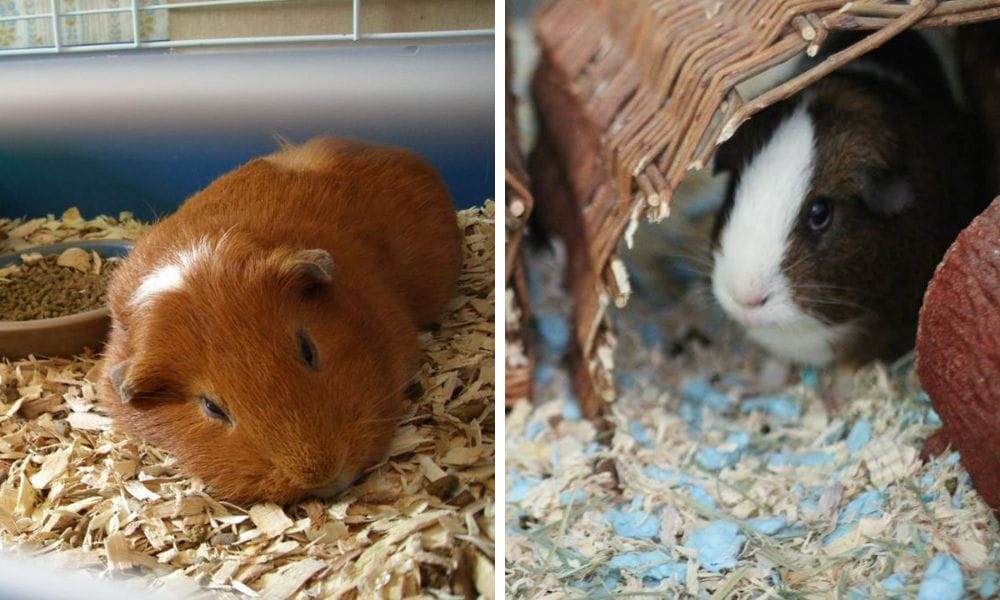
Moreover, the location of the guinea pig's cage within your home plays a role in their sleep quality. It should be placed in a calm area away from loud noises and disturbances that could interrupt their rest. Remember, guinea pigs are sensitive to their surroundings, and a peaceful cage environment is key to supporting their natural sleeping habits. By paying attention to these details, you can help your furry companion achieve the restful sleep they need for their overall well-being.
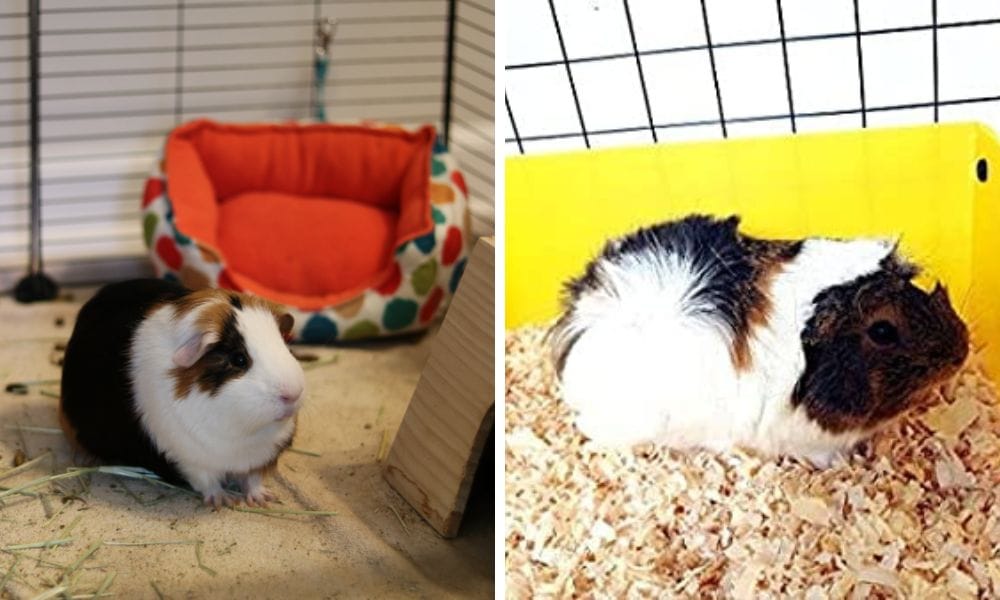
Integrating Sleep Knowledge into Guinea Pig Care
When it comes to ensuring the well-being of your pet guinea pig, recognizing their guinea pig's sleeping habits is just the beginning. By creating an environment that respects their natural sleep patterns, you contribute significantly to their overall health. For instance, placing the guinea pig's cage in a quiet area of your home can help mimic the calm periods they would seek out in the wild for rest. Additionally, providing hiding spots within the cage can offer a sense of security, allowing for more restful power naps throughout the day and night.
Moreover, being mindful of your guinea pig's sleep can also enhance your bond with your furry friend. Observing when they are most active and engaging with them during those times can lead to more meaningful interactions. Remember, a happy guinea pig is one whose natural instincts are honored, and that includes respecting their unique sleep needs. By doing so, you're not just catering to a valid domain of pet care, but you're also nurturing a deeper understanding and connection with your pet.
The Social Aspect of Sleep
Guinea pigs are social creatures that thrive on interaction with their own kind. In the wild, guinea pigs sleep in groups to keep warm and protect each other. Pet guinea pigs also enjoy the company of their cage mates, and you may often find them snuggling together during their naps. However, housing guinea pigs of the same sex, particularly males, can lead to behavioral issues such as fighting, which may disrupt sleep. This social sleeping not only provides warmth but also a sense of safety, which is crucial for their well-being.

Recognizing Sleep Disturbances
It's important for guinea pig owners to be aware of their pet's sleep habits. If you notice that your guinea pig sleeps more than usual or seems lethargic during their active periods, it could be a sign of illness or stress. Conversely, if your guinea pig is getting too much sleep, it may indicate that they are not getting enough stimulation or exercise during their awake hours.
The Role of Diet in Sleep
A balanced diet is essential for the overall health of guinea pigs, and it also affects their sleep routine. A diet rich in fiber, such as hay, helps maintain their digestive health, which can contribute to better sleep. Piggies are highly selective eaters, preferring fresh hay as a staple, supplemented with leafy greens and vegetables rich in vitamin C. Additionally, providing food at consistent times can help establish a regular sleep schedule, as guinea pigs will learn when to expect their meals and when it's time to rest.
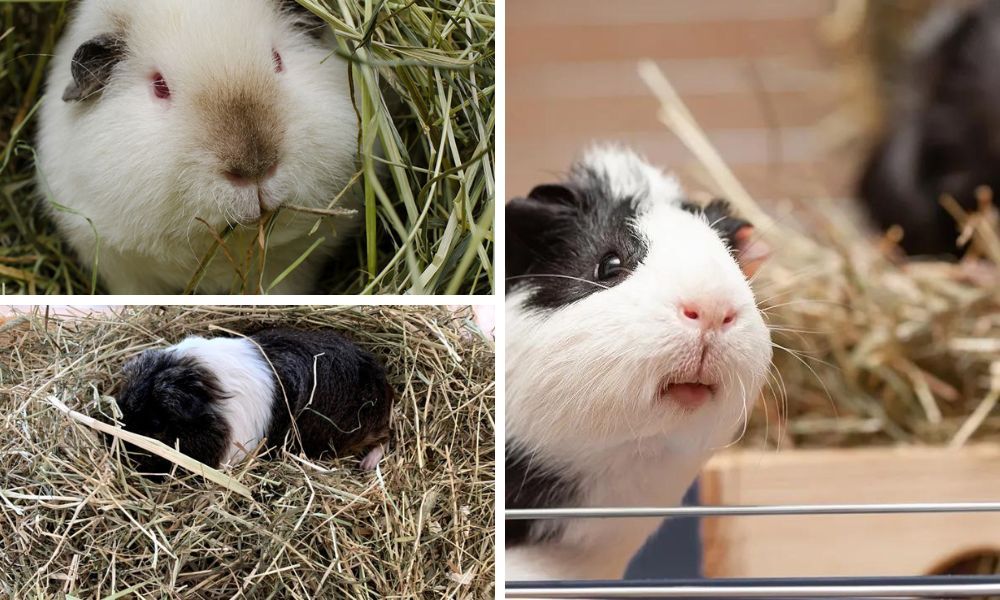
Fun Fact: Sleeping with Eyes Wide Open
A fascinating aspect of guinea pig sleeping habits is their ability to sleep with their eyes open. This trait is a survival mechanism that allows them to remain aware of their surroundings even while resting. While it may seem odd to humans, for guinea pigs, it's a natural way to ensure they are always ready to react to danger.
Nocturnal or Diurnal: What Makes Sense?
Given their crepuscular nature, it's clear that guinea pigs are neither nocturnal nor strictly diurnal. Their sleep schedule is adapted to their needs as prey animals and their social lifestyle. Understanding this can help pet owners create a living environment that respects their natural sleep habits and promotes their health and happiness.
The Importance of Routine
Establishing a routine is beneficial for guinea pigs. Consistent feeding times, playtimes, and quiet times can help regulate their sleep schedule. By creating a predictable daily routine, you can help your guinea pig feel secure and ensure they get enough rest to stay healthy.
Summary
Guinea pigs are not nocturnal creatures; they are crepuscular, meaning they are most active during the early morning and evening hours. They require short naps throughout the day and night, totaling about four to six hours of sleep. Creating a comfortable and safe environment, providing proper nutrition, and maintaining a consistent routine are all crucial for ensuring that your guinea pig gets enough sleep and remains healthy. By understanding and respecting their natural sleep patterns, you can enhance the well-being of your furry friends.
FAQ Section
Q: Can guinea pigs sleep through the night? A: Guinea pigs do not typically sleep through the night. They take multiple short naps throughout the day and night, which allows them to remain alert to their surroundings.
Q: How can I tell if my guinea pig is getting enough sleep? A: If your guinea pig is active during their usual awake hours and shows no signs of lethargy or stress, they are likely getting enough sleep. They should be alert and responsive when awake.
Q: Should I cover my guinea pig's cage at night to help them sleep? A: Covering the cage can help some guinea pigs feel more secure and reduce disturbances from light and noise. However, ensure that there is adequate ventilation and that your guinea pig does not overheat. Observe your pet's behavior to determine if they prefer having their cage covered.

